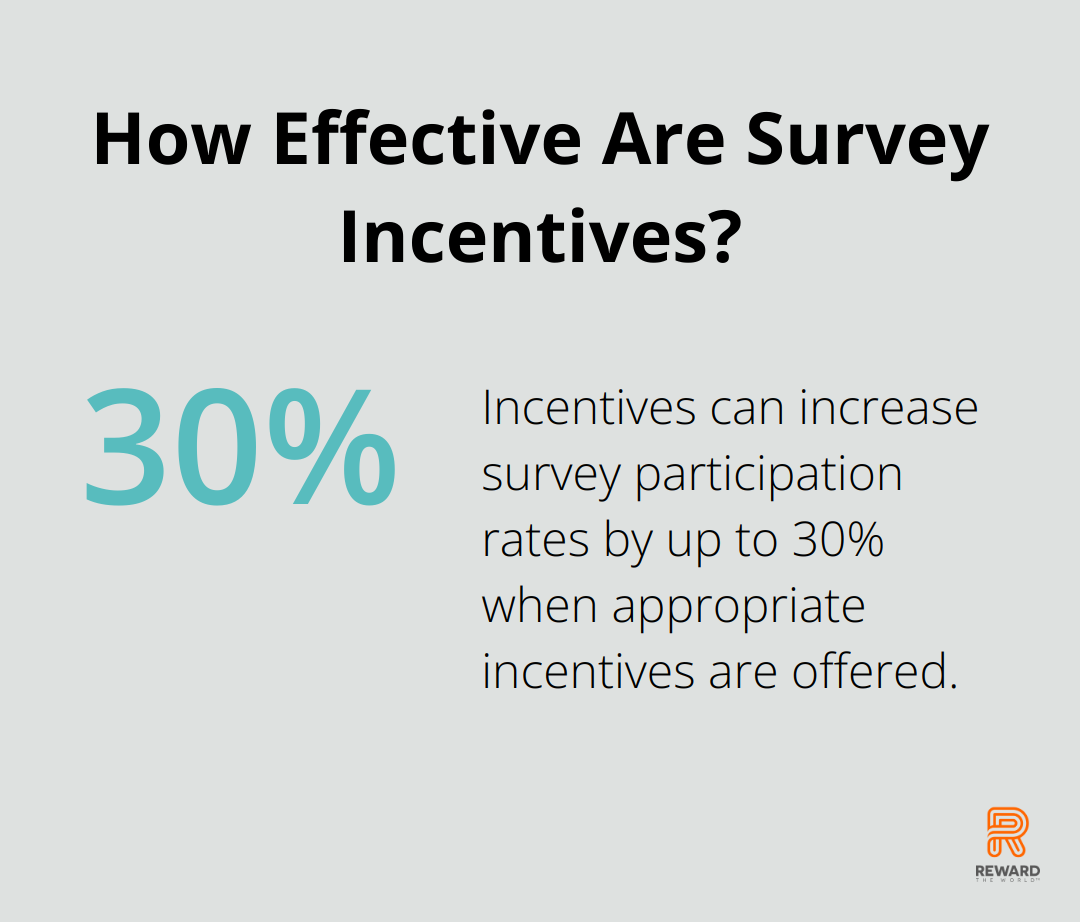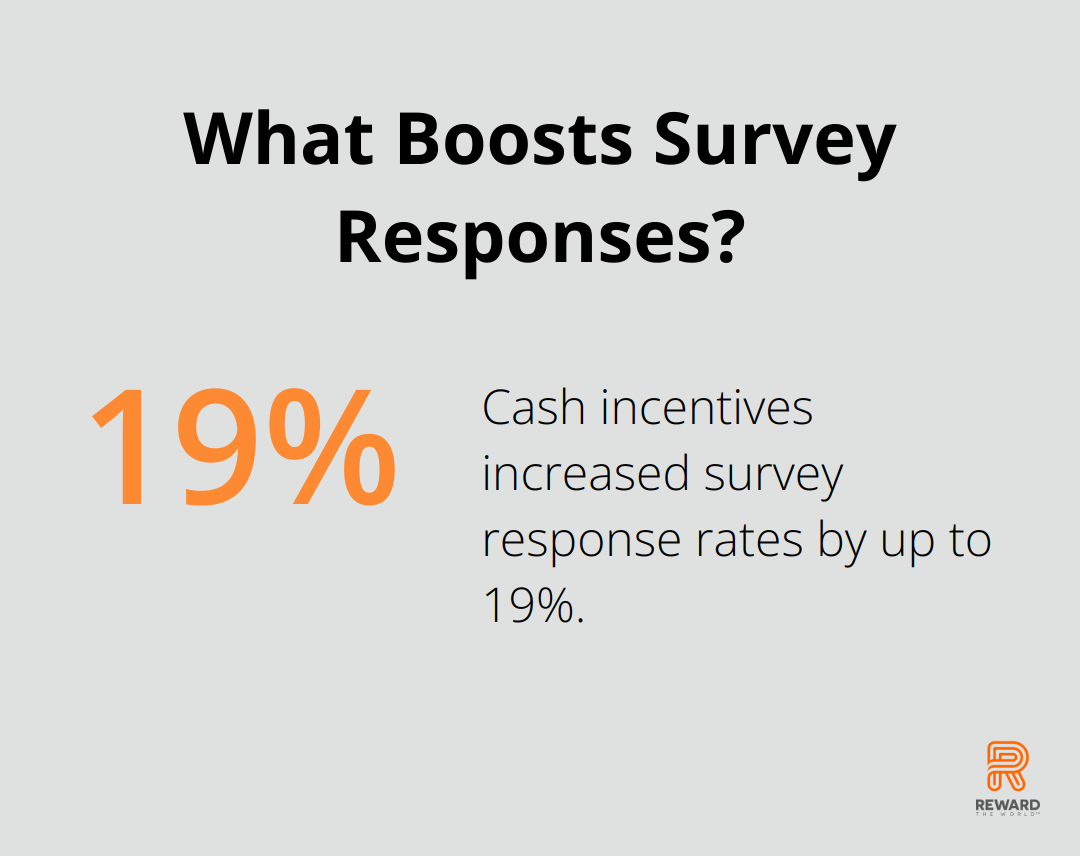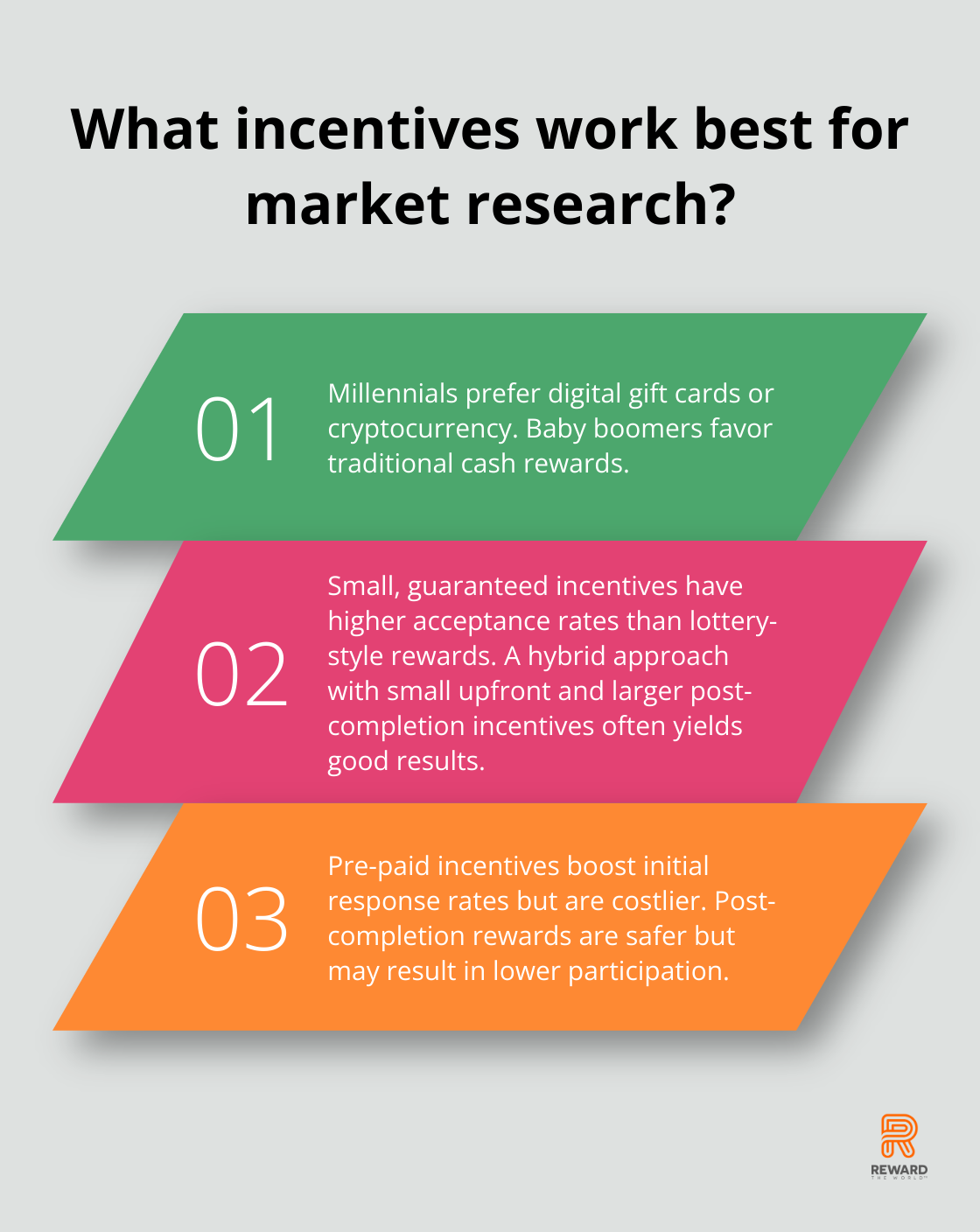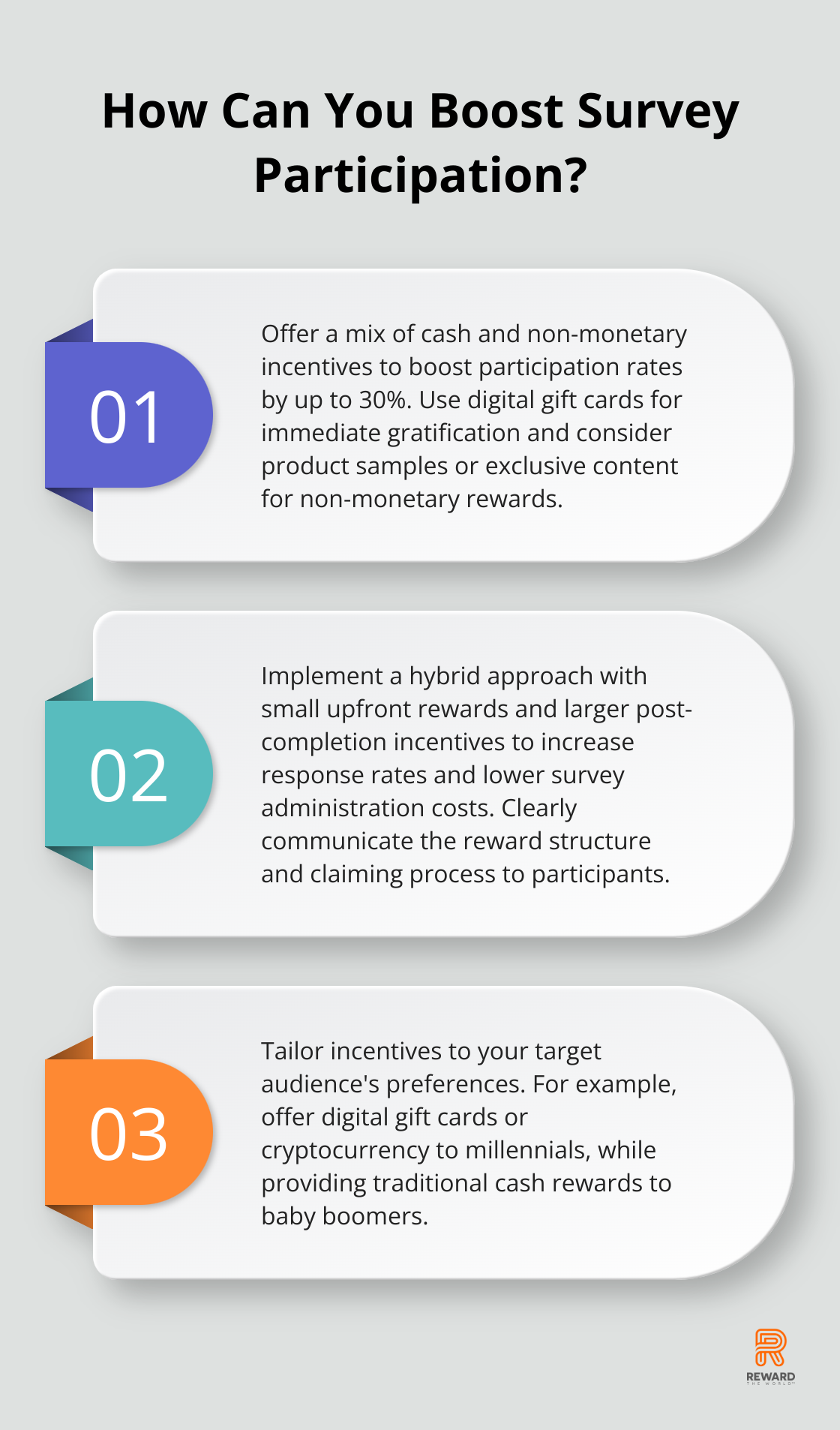
Market research incentives are a game-changer for businesses seeking valuable consumer insights. They boost participation rates, improve data quality, and enhance overall engagement in surveys and studies.
At Reward the World, we’ve seen firsthand how the right incentives can transform research outcomes. This post: Market Research Incentives: Boost Participation Rates, explores the power of incentives in market research and offers practical tips for implementing effective reward strategies.
Why Incentives Matter in Market Research
The Power of Motivation
Market research incentives are not just a nice-to-have; they’re a must-have for businesses serious about gathering high-quality data. Incentives tap into basic human psychology. People invest their time and effort more willingly when they receive something tangible in return. A study by the Journal of Marketing Research found that even small monetary rewards can double survey response rates. This boost in participation doesn’t just increase quantity; it often leads to more thoughtful and detailed responses.
Quality Over Quantity
Incentivized participants often provide better quality data (contrary to what some might think). Research published in the Public Opinion Quarterly shows that respondents who receive incentives complete surveys in full more often and provide more detailed open-ended responses. This higher engagement level results in richer, more actionable insights for businesses.
Cost-Effective Data Collection
While offering incentives involves an upfront cost, it’s often more cost-effective in the long run. The increased response rates mean fewer follow-ups and a shorter data collection period. Recent research suggests that non-monetary incentives like shopping vouchers are commonly used to improve survey response, but they have little to no impact on the survey rate.
Boosting Response Rates
Incentives significantly increase survey response rates. Some studies have shown increases of up to 30% in participation when appropriate incentives are offered. This substantial increase in participation translates to more comprehensive and reliable insights (which are invaluable for making informed business decisions).
Enhancing Participant Engagement
Incentives don’t just attract more participants; they also keep them engaged throughout the research process. Engaged participants are more likely to provide thoughtful, detailed responses and complete longer surveys. This enhanced engagement leads to more nuanced insights and a deeper understanding of consumer behavior.

As we move forward, it’s clear that incentives play a vital role in shaping the success of market research efforts. The next section will explore the various types of incentives that businesses can use to maximize their research outcomes.
What Incentives Drive Market Research Participation?
Cash: The Universal Motivator
Monetary rewards remain the most powerful motivator in market research. Cash incentives, particularly in the form of digital payments or gift cards, offer immediate gratification and flexibility. A study by the Journal of Economic Perspectives found that cash incentives increased survey response rates by up to 19%. The rise of digital currencies has introduced new possibilities. Cryptocurrency rewards, while still niche, are gaining traction, especially among tech-savvy participants.
Exclusive Experiences: Beyond Monetary Value
Non-monetary rewards can be equally compelling when tailored to your audience. Product samples work wonders in consumer goods research, offering a tangible benefit that resonates with participants. Exclusive content or early access to new features can be powerful motivators in tech and entertainment sectors.
Charitable Donations: Incentives with Heart
Charitable donations as incentives tap into participants’ altruistic motivations. This approach works particularly well with socially conscious demographics.
Gamification: Engaging Long-term Participation
Points-based systems and prize draws add an element of gamification to the research process. These methods are especially effective for long-term studies or panel research. They create a sense of ongoing reward and can significantly boost retention rates.
Tailored Incentives: The Key to Success
When choosing incentives, it’s essential to align them with what your customers value the most. A wide range of incentive options allows businesses to tailor their approach for maximum impact. The right mix of incentives can dramatically improve participation rates, data quality, and overall research success.

Now that we’ve explored various incentive types, let’s examine how to implement these strategies effectively in your market research efforts.
How to Maximize the Impact of Market Research Incentives
Know Your Audience
The success of incentives in market research hinges on understanding what motivates your target audience. Millennials often prefer digital gift cards or cryptocurrency, while baby boomers tend to favor traditional cash rewards. A study found that acceptance rates were higher when incentives were small but guaranteed, compared to a lottery for a greater incentive.
Navigate Legal and Ethical Considerations
Compliance with legal regulations is paramount when offering incentives. Different countries (and even states) have varying rules on sweepstakes and monetary rewards. For example, the U.S. Telephone Consumer Protection Act (TCPA) imposes strict guidelines for phone and text-based surveys. Always consult legal experts to ensure full compliance.
Communicate Clearly
Transparency about incentives can significantly impact your research outcomes. Clearly state the reward, claiming process, and any conditions. Avoid vague promises or hidden terms that could erode trust.
Balance Value and Budget
Finding the sweet spot between incentive value and research budget is essential. While higher rewards generally yield better response rates, there’s a point of diminishing returns.
Consider Timing and Distribution
The timing of incentive delivery matters. Pre-paid incentives can boost initial response rates but come with higher costs and risks. Post-completion rewards are safer but may result in lower participation. A hybrid approach (offering a small upfront reward with a larger post-completion incentive) often yields good results, as prepaid incentives have been shown to increase response rates and lower survey administration costs.

Your reward distribution platform plays a critical role in the participant experience. A reliable system ensures instant, hassle-free reward delivery, enhancing the overall participant experience and boosting your research outcomes. (Reward the World excels in this area, providing seamless reward distribution across multiple channels.)
Final Thoughts
Market research incentives are powerful tools for businesses seeking valuable data and insights. Companies can boost participation rates, improve data quality, and enhance engagement in their research efforts by offering the right rewards. The key is to understand the target audience and tailor incentives to their preferences and motivations.

Effective incentive programs for market research don’t need to be complex. Reward the World (https://rewardtheworld.net) offers a comprehensive solution for businesses aiming to enhance their research outcomes through incentives. Our platform provides global reach, instant reward delivery, and a wide array of reward options.
Market research incentives unlock deeper consumer insights, inform decision-making, and drive growth in today’s competitive marketplace. Partnering with a reliable platform like Reward the World helps businesses design and execute incentive strategies that yield valuable insights. We empower companies to make data-driven decisions and stay ahead of the competition.
